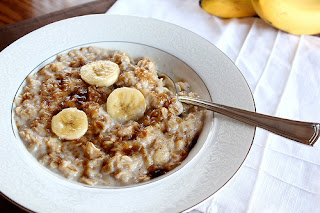Health Benefits of bananas...
Bananas are one of the most commonly consumed
fruits in the world for good reason.
The beautiful shaped yellow fruit packs a big
nutritional punch, wrapped in its own convenient packaging. Some experts
believe that the banana may have even been the world's first fruit.
Today, bananas are grown in so many countries and
are stand at fourth among the world's food crops in economic value. Americans
consume more bananas than oranges and apples combined.
With the world consuming so many bananas, it’s
unsurprising that people are raising the question: are bananas good for us? Here
are the potential health benefits of bananas.
Possible health benefits of bananas
Listed below are the health benefits connected with
bananas. It is important to note that more high quality studies are required
before these health benefit links are proved definitive.
1) Maintain Blood pressure
Maintaining low sodium (NA) intake is essential to
lowering blood pressure, however increasing potassium (K) intake may be just as
important because of its vasodilatation effects. According to the survey of
National Health and Nutrition Examination, Less than 2% of American adults meet
the daily 4700 mg recommendation.
Also of note, a high potassium intake is connected
with a 20% decreased risk of dying from all causes.
2) Decreases the chance of Asthma
A research conducted by the Imperial College of
London found that children who ate just one banana per day had a 34% less
chance of developing asthma.
3) Bananas for Cancer
Consuming bananas, oranges and orange juice in the
first two years of life may reduce the risk of developing childhood leukemia.
Bananas are good source of vitamin C, which can help combat the formation of
free radicals known to cause cancer. High fiber intakes from fruits and
vegetables like bananas are associated with a lower risk of colorectal cancer.
4) Heart health
The potassium, fiber, vitamin C and B6 content in
bananas all support heart health. An increase in potassium intake along with a
decrease in sodium intake is the most important dietary change that a person
can make to reduce their risk of cardiovascular disease, according to Mark
Houston, MD, MS, an associate clinical professor of medicine at Vanderbilt
Medical School and director of the Hypertension Institute at St Thomas Hospital
in Tennessee. In one research, those who
consumed 4069 mg of potassium per day had a 49% lower risk of death from
ischemic heart disease compared with those who consumed less potassium (about
1000 mg per day).
High potassium intakes are also associated with a
reduced risk of stroke, protection against loss of muscle mass, preservation of
bone mineral density and reduction in the formation of kidney stones.
5) Regulates Diabetes
Studies have shown that type one diabetics who
consume high-fiber diets have lower blood glucose levels and type two diabetics
may have improved blood sugar, insulin and lipids levels. One medium banana
provides about 3 grams of fiber.
The Dietary Guidelines for Americans recommends
21-25 g/day for women and 30-38 g/day for men.
6) Treating diarrhea
Bland foods such as banana and apple sauce are
recommended for diarrhea treatment. Electrolytes like potassium are lost in
large quantities during bouts of diarrhea and may make those affected feel
weak. Bananas can help to store and promote regularity and replenish potassium.
7) Preserving memory and boosting mood
Bananas also contain tryptophan, an amino acid that
studies suggest plays a vital role in preserving memory and boosting your mood.
Look at the nutritional profile of bananas, how to
incorporate more bananas into your diet.
Nutritional profile of bananas
One medium banana (about 126 grams) is considered
to be one serving. One serving of banana contains 110 calories, 30 grams of
carbohydrate and 1 gram of protein. Bananas are naturally free of fat,
cholesterol and sodium.
Bananas provide a variety of vitamins and minerals:
Manganese - .3 mg
Vitamin C - 9 mg
Potassium - 450 mg
Dietary Fiber - 3g
Protein - 1 g
Magnesium - 34 mg
Folate - 25.0 mcg
Riboflavin - .1 mg
Niacin - .8 mg
Vitamin A - 81 IU
Iron - .3 mg
The recommended intake of potassium for adults is
4700 milligrams per day.
Adding more bananas into your diet
Fresh bananas are available all round the year.
Unlike other fruits, the ripening process of bananas does not slow down after
they are picked. Bananas should be stored at room temperature. The warmer the
temperature, the faster bananas will ripen. However, to slow ripening, bananas
should be refrigerated. The outer peel of the banana will darken but the banana
itself will stay intact longer.
To encourage faster ripening, place the banana in a
brown paper bag at room temperature.
In 2008, a popular diet fad known as the Morning
Banana Diet recommended eating a banana in the morning along with water, eating
a normal lunch and having dinner before 8pm.
Bananas and oatmeal
Add a sliced banana to your morning cereal or
oatmeal for a more nutritious breakfast
Like apple sauce, ripe mashed bananas can be used
in baked goods to replace oil or butter. Mashed bananas lend a moist, naturally
sweet flavor to muffins, cookies and cakes.
Peel and freeze bananas for a great addition to any
smoothie.
Add sliced banana to your morning cereal or
oatmeal, or take a banana with you on your way to work or school for a healthy,
portable snack.
Source: http://www.medicalnewstoday.com/articles/271157.php?page=2




































